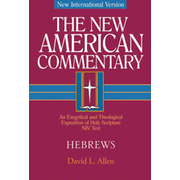Two years ago I read and reread Peter’s How (Not) to Speak of God. I intended to post on that inaugural volume, but first wanted to read it yet again. I did (not) recommend it to my brighter students. Now his second work has arrived on my desk: The Fidelity of Betrayal: Towards a Church Beyond Belief. I have finished the first reading (underlined, annotated with lots of question marks, exclamation points, smiley faces and frowns).
Towards a Church Beyond Belief. I have finished the first reading (underlined, annotated with lots of question marks, exclamation points, smiley faces and frowns).
For years I have been trying to persuade my students to always listen to their interlocutors carefully and empathetically, especially if they intend to respond in a critical way. I have been afraid that few would do this with Peter Rollins. I still think he is being largely ignored (he is not easy to read [the little stories can be deceiving], though easy to react to). That will probably change. I have not met Peter Rollins, though I heard him speak at a panel once with McClaren and others.
Most theology books don’t matter. This one does. Not because it is right or wrong. But because it may change the conversation. Not everyone can easily read it. And few who can, will be able to quickly glean the wheat from the chaff. That’s what makes a good book; it is over our heads (and perhaps, in places, over our hearts).
I once read a critique of Paul Tillich’s Systematic Theology by Alexander McKelway (a student of Karl Barth’s). It was a model of careful critical engagement. Only when such empathetic and discerning work is done is one really in a position to say something worthwhile about a theologian. I hope some will give Peter Rollins this courtesy. As with Tillich we may well have serious disagreements (and deep pastoral concerns), but we may also have something useful to learn. For an example of some preliminary discussion see the conversation going on at Christians in Context.
By the way, for all their differences, I note some interesting connections between Rollins and Tillich. For example, Tillich was concerned about the tendency in Protestantism wherein “faith as the state of being grasped [is reduced to] the belief in doctrine” (S.T., II, 85). Compare Peter throughout his two volumes, and for example: “God is not a problem to be solved but rather a mystery to participate in” (Fidelity of Betrayal, 115). Tillich famously defines God as “the ground of being.” Peter writes, “God is that which grounds our world and opens a world up to us” (115). There are, of course, vast differences as well.
Rollins makes for a stimulating read. Many of his stories are insightful, and he tells them well. My biggest concern, and I am willing to listen more, is well summarized in McKelway’s critique of what he sees as the central problem in Tillich: “This problem and danger, to put the matter simply, is the lack of a consistent focus on the revelation of God in Jesus Christ” (177). Peter would probably object.








 Towards a Church Beyond Belief
Towards a Church Beyond Belief